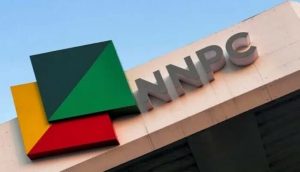
Ukpe Philip
The strategies adopted by Nigeria’s wealthiest and most profitable company, the Nigerian National Petroleum Company Ltd (NNPCL) to ramp up crude oil production has again proven to be effective after a surprise 3.19 per cent growth in Nigeria’s Gross Domestic Product (GDP) which defied expert projections.
The GDP figures released by the National Bureau of Statistics (NBS) showed that the Crude Petroleum and Natural Gas (oil sector) was the fifth largest contributor to the GDP in the second quarter of 2024, accounting for 5.70 per cent of total GDP which was measured at 3.19 per cent.
The oil sector is a crucial part of the Nigerian economy and it is evident that the economy driven by growth in the oil sector and service industry is returning to the good old days when Nigeria’s GDP grew sustainably.
Since 2020, when Nigeria’s economy has slipped into recession, the oil sector has been struggling with negative growths of -8.89 per cent in 2020, -8.30 per cent in 2021 and -19.22 per cent in 2022.
But the rate of decline decelerated drastically in 2023 to -2.22 per cent in 2023 full year which signalled great relief for the economy and the country is expected to experience a full year growth in the oil sector for the first time since 2019 when the sector recorded 4.59 per cent growth.
Growth in the oil sector has a huge implication for the Nigerian GDP because the economy is an oil economy. A clear instance is that in 2020, when the sector fell -8.89 per cent, GDP also fell -1.79 per cent.
The game has changed in 2024 as efforts by the NNPC led by the Group Chief Executive Officer, Mele Kyari, to increase oil production is translating to growth in the sector and, by extension an improved GDP performance.
In the second quarter of this year, NBS measured average oil production at 1.4 million barrels per day compared to 1.22mbpd production in the corresponding period of 2023.
According to the NBS, the real growth of the oil sector in Q2 2024 was 10.15 per cent annualised, indicating an increase of 23.58 per cent points relative to the rate recorded in the corresponding quarter of 2023 where negative growth of -13.43 per cent was recorded.
This drove the sector to contribute 5.70 per cent to the total real GDP in the second quarter of 2024 which is a rise from the figure recorded in the corresponding period of 2023 when the sector accounted for 5.34 per cent of GDP.
The NBS emphatically said, “The nation in the second quarter of 2024 recorded an average daily oil production of 1.41 million barrels per day higher than the daily average production of 1.22 mbpd recorded in the same quarter of 2023 by 0.19 mbpd.”
The Petroleum Industry Act (PIA) of 2021 empowers the NNPC to ensure energy security for Nigeria through increased crude oil output among others, and this has huge implications for the economy.
Nigeria’s journey towards energy security faced great obstacles when crude oil output plummeted to 900,000 barrels per day in late 2022 due to theft, pipeline vandalism, and inadequate metering.
Consequently, the oil sector equally witnessed -19.22 percent negative growth in 2022 while the GDP growth fell to 3.10 percent compared to 3.40 percent in 2021. This showed a direct correlation between the performance of the oil sector and the GDP.
To rescue the economy which is largely dependent on oil, Kyari-led NNPC embarked on a massive campaign that united the security agencies, the NNPCL, Nigerian Upstream Petroleum Regulatory Commission and host communities to fight oil theft in the oil-rich Niger Delta.
The NNPC Ltd also awarded a pipeline surveillance contract to Tantita Security Services, which has led to the arrest of several vessels stealing Nigerian crude.
In July 2023, Tantita Security Services working in collaboration with NNPC discovered over 60 illegal connections to the trans-Escravos, trans-Forcados, and other major trunk lines by oil bunkDeltaBayelsa states.
In January 2024, the fight led to the interception of MT Kali, an illegal crude oil vessel loaded with thousands of metric tonnes of crude oil. About 20 crew members, including community collaborators, were arrested.
Another success was achieved in June 2024 as the NNPC uncovered an additional 165 illegal refineries in various locations across the Niger Delta, while 65 illegal connections were discovered and disconnected in Bayelsa and Rivers States.
In May, NNPC uncovered 122 illegal refineries at Tomble II, III, IV, Umuajuloke, Rivers State as well as Oporomor III, Eduwini, and Ajatiton in Bayelsa State, all in the Niger Delta region.
Aside from investments in oil, the NNPC has also shown commitment by investing in critical midstream gas infrastructure such as the Obiafu-Obrikom-Oben (OB3) and the Ajaokuta-Kaduna-Kano gas pipelines to boost domestic gas production and supply for power generation, industrial development and economic prosperity of the country.
Without a doubt, NNPC’s effort is helping the Nigerian government shake up the economic pressure on the government and different sectors of the economy.
As of May 2024, crude oil production rose to 1.7mbpd, according to Kyari who linked the rise in oil output to the firm’s fight against crude oil theft and vandalism as well as massive investment in the sector.
Financial analysts at United Capital Research said that due to improved crude production, net exports are expected to be the primary growth drivers, with rising oil export volumes due to improved security in the Niger Delta.
“We align with the International Monetary Fund’s (IMF) projection that Nigeria’s real GDP will increase modestly to 3.1 percent in 2024. In the oil sector, the Nigerian economy is set to benefit from favorable developments, offering positive momentum in 2024,” the firm said in a recent report.
Ukpe writes from Abuja
 DailyrecordNg …Nigeria's hottest news blog
DailyrecordNg …Nigeria's hottest news blog








